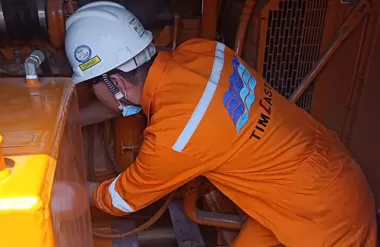Jul. 21, 2023
Discover the reasons behind helium's popularity in gas leak detection. Learn about its benefits and effectiveness in this comprehensive guide.
Gas leaks can pose significant risks to safety, the environment, and equipment. Detecting and locating these leaks promptly is crucial for preventing potential hazards. One of the preferred methods for gas leak detection involves using helium gas. In this article, we'll explore the reasons why helium is widely used for detecting gas leaks, its advantages, and how it enhances the accuracy and efficiency of leak detection processes.
Helium is an inert, non-toxic, and non-flammable gas with a low density compared to the majority of gases. When mixed with another gas, helium can easily escape through even the tiniest openings or leaks. This property makes it highly effective for detecting leaks in various systems, including pipelines, industrial equipment, and refrigeration systems.
Due to its low density, helium is more sensitive to minute leaks. When helium is used as a tracer gas, it can quickly identify even the smallest leaks that might be difficult to detect using other methods. This sensitivity allows for early leak detection, reducing the potential for further damage or safety hazards.
Helium is an excellent choice for gas leak detection because it is non-toxic and environmentally friendly. When released into the atmosphere during leak tests, helium poses no harm to humans or the environment. This is especially important in industries where safety and environmental concerns are paramount.
Helium leak detection is often performed using mass spectrometers, specialized instruments that can accurately detect and measure trace amounts of helium. These devices can precisely pinpoint the location of the leak, making it easier for technicians to conduct repairs or take appropriate actions.
Helium leak detection can be used for a wide range of applications, from simple household appliances to complex industrial systems. It is effective in identifying leaks in gas pipelines, vacuum systems, refrigeration units, and even spacecraft components. Its versatility makes it a popular choice across various industries.
While helium is an essential gas used in various industries, it is relatively abundant and affordable. Considering its sensitivity and efficiency in leak detection, the cost-benefit ratio of using helium for this purpose is highly favorable.
Many industries and regulatory bodies recognize the effectiveness of helium leak detection. Numerous international standards and guidelines recommend or require the use of helium as a tracer gas for specific applications. Complying with these standards ensures that leak detection processes are reliable and consistent.
While helium is effective for many types of leak detection, it may not be suitable for all gases. Some gases might require different tracer gases or methods for detection.
Helium can be introduced into the system being tested through specialized equipment, such as spray bottles, vacuum systems, or helium leak detectors.
Helium is generally safe to use, but it's essential to follow proper handling procedures and ventilation practices, especially in confined spaces.
Yes, there are alternative tracer gases like hydrogen or refrigerants that can be used for leak detection in specific applications.
Yes, helium leak detection can be used for outdoor applications, but weather conditions and wind may affect the accuracy of the results.
In conclusion, helium is a preferred choice for gas leak detection due to its low density, enhanced sensitivity, safety, and cost-effectiveness. When combined with advanced detection equipment like mass spectrometers, helium provides accurate and efficient results in locating leaks in various systems. Its widespread use across different industries underscores its reliability and importance in maintaining safety and protecting the environment.
Dec. 12, 2023
The Basics of Electric Heat Trace Technology In the world of industrial processes and temperature control, Electric Heat Trace (EHT) technology plays a crucial role.Nov. 23, 2023
Performing a Leak Test: Step-by-Step Guide A leak test is a crucial procedure to ensure the integrity of a system and identify potential leaks in pipes, joints, or containers.Nov. 08, 2023
Main Steps of a Flange Management Procedure Flange management is a critical aspect of maintaining the integrity and reliability of piping systems in various industries.

